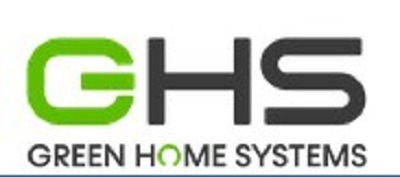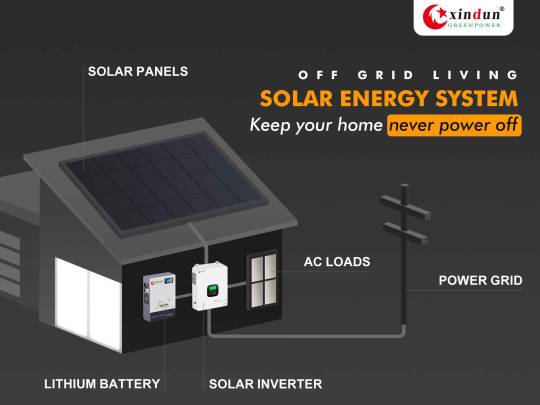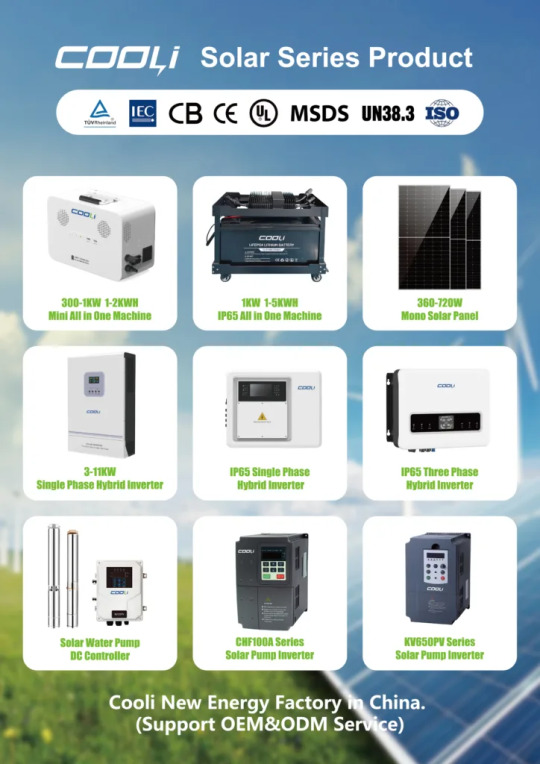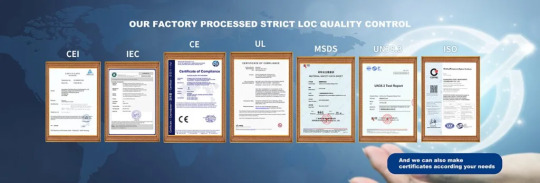#Solar inverter
Explore tagged Tumblr posts
Text
Cables & Wires — Premium Quality by Ksquare Energy
One of the prominent manufacturers and suppliers of solar cables and wires in Ahmedabad, Gujarat, for quality cables and wires is Ksquare Energy. Ksquare Energy strives to offer durable and quality wiring solutions, and as such, it deals in a variety of products, such as industrial, solar, and domestic cables, at reasonable prices.

House Wiring and Cables — Ensuring Safe Power Distribution

More Details on : A Brief Guide About Solar Cables
Solar Cables — Efficient & Weather-Resistant
Ksquare Energy deals with solar cables designed to withstand rigorous environmental conditions. Solar wires we produce are weatherproof, UV-resistant, and strong enough to withstand harsh climate conditions, giving long-lasting solar power system performance. As a reliable solar cable producer, we make sure our products meet global safety standards to ensure they’re the ideal choice for solar panel installations.
Industrial and Electrical Cables
Besides house wiring cables and solar cables, Ksquare Energy also offers a full variety of industrial application electrical cables. Our power cables and flexible wires are produced using high-quality materials to ensure utmost safety, efficiency, and performance in heavy-duty applications.
Why Choose Ksquare Energy?
High-Quality Production: We manufacture our wires and cables from high-grade materials for strength and safety.
Reasonable Prices: We provide the lowest prices for house wiring and solar cables without any compromise on quality.
Complete Product Line: From cables for houses to solar wires, we cover all your needs.
Reliable Gujarat Supplier: Established in Ahmedabad, we are a top wire and cable manufacturer that is relied upon by industries.
For high-end solar cables, home wiring, and industrial cable, opt for Ksquare Energy — your trusted associate in power solutions. Call us today for the best prices!
@ksquareenergy
#ksquareenergy#solar panels#solar panel installation#solar system#solar cables#solar wires#cables and wires#solar inverter#solar energy#green energy
2 notes
·
View notes
Text
Deye Industrial Inverters 125kW & 136kW
Boost Your Solar Efficiency with Deye Industrial Inverters! 🔋 Power your industrial solar projects with 125 kW & 136 kW Deye Inverters, designed for maximum performance and efficiency up to 98.8%. ⚡ Why Choose Festa Solar? ✅ Ready Stock Available ✅ Best Offer Price Guaranteed ✅ 8 Years On-Site Warranty Features: 🔹 8 MPP Trackers for optimized energy conversion 🔹 Wide Output Voltage Range 🔹 Zero Export & VSG Application 🔹 Anti-PID Function (Optional) 🔹 Type II DC/AC SPD for enhanced protection 📩 Contact us: [email protected] 🌐 Explore Our Products: www.festasolar.com/products
#FestaSolar #DeyeInverters #SolarInverters #SolarPanels #RenewableEnergy #GoSolar #SolarIndustrialInverters #SolarTechnology #IndustrialSolar

#hybrid inverter#solar energy#inverter battery#solar pv#solar power#solar panels#solar inverter#solar
2 notes
·
View notes
Text
Celebrate the Spirit of New Beginnings – Ugadi Festival 2025

Ugadi, the festival that marks the start of the new year in the Indian states of Andhra Pradesh, Telangana, Karnataka, and Maharashtra, is a time for renewal, reflection, and joy. This vibrant festival symbolizes new hopes, fresh opportunities, and the triumph of positivity.
New Beginnings: It’s a time to embrace new goals and aspirations.
Cultural Richness: A blend of traditional rituals, delicious dishes, and colorful celebrations.
The Ugadi Pachadi: A unique dish representing life’s mix of sweet, sour, bitter, and spicy flavors—just like the ups and downs we experience.
As we welcome this auspicious day, let’s cherish the spirit of growth, gratitude, and togetherness.
Wishing everyone a joyful, prosperous, and inspiring Ugadi!
#solar inverter#solar energy#solarpunk#solarballs#solar system#tsams solar#solar pv#solar panels#solar power#networking equipment#online ups#inverter ac#inverter battery#best inverter#inverter air conditioner
2 notes
·
View notes
Text

We’ve just installed 10 Jinko 435W solar panels with a 4kW Huawei KTL inverter! 🌞⚡ This system delivers over 4.3 kW of solar energy, boosting energy efficiency and cutting electricity costs. The 4kW Huawei KTL inverter ensures optimal power conversion, making it the perfect eco-friendly solution for homes ready to go green.
Looking to lower your bills and switch to sustainable energy? Click here and we will show you how much you can save with solar energy in Algvare!
#SolarEnergy #JinkoSolar #HuaweiKTL #SolarPanels #EnergyEfficiency #Sustainability #AlgarveSolar
3 notes
·
View notes
Text
Which inverter is best for solar in 2024?

The best inverter for solar depends on the capacity of the solar panel. If you are looking for an inverter for solar then this article will help you find the best inverter for solar. So in this article, I am going to inform you about the best inverter for solar in 2024.
Benefits of a Solar Inverter
There are many benefits of the solar inverter. Some of the main benefits of solar inverter are discussed here.
Solar inverter technology provides energy independence, reduces the reliance on conventional power, contributes to environmental sustainability and durability, and lowers electricity bills. It also promotes clean energy and minimizes carbon footprints.
youtube
Types of solar inverters
Mainly there are 3 types of solar inverters which are available in India. On-grid solar inverter, off-grid solar inverter, and hybrid solar inverter. Let’s discuss them below.
1. On grid solar inverter: On grid solar inverter is a grid-connected solar inverter. It is dependent on the grid connection which means the electricity will be supplied through the inverter by the electricity board. If there is electricity available by the electricity board it will work, but if there is no electricity available by the electricity board then it will not work. The advantages of on grid inverters are that they are the most commonly used solar inverters that are adopted by customers due to its working philosophy, it will cut the whole load during peak hours in an office, no battery storage is required, no maintenance cost, and no generation loss.
2. Off grid solar inverter: Off grid solar inverter is a battery-based solar inverter. It is not dependent on electric grids, but it has a battery to store the excess electricity. It is installed in locations where electricity supply is less or not available. It can supply power in rainy or windy days. Off grid solar inverter is used for battery charging and load sharing with the availability of the PV system and feed load by the charged battery when there is no availability of the PV system.
3. Hybrid solar inverter: The hybrid solar inverter is a combination of both on-grid and off-grid solar inverters. It has multiple sources to supply electricity such as solar/PV, grids, storage batteries, and hydro plants. It is a complicated system in which synchronization is required between all the connected systems and loads.
Best inverter for solar in 2024
The best inverter for solar in 2024 is the “hybrid solar inverter”. As mentioned above the hybrid solar inverter is a combination of both on-grid and off-grid solar inverter. It has battery storage which can store the excess electricity for later use. The hybrid system works with the availability and the non-availability of electricity.
Conclusion
I hope you got the answer. If you are looking for an inverter then you should consult the best solar inverter manufacturer in your city. They will guide you and help you to choose the best inverter for solar.
3 notes
·
View notes
Text
Hi everybody! Look at here. Our company, Shenzhen Youess Energy Storage Technology Co., Ltd, have more than 10 years of technology research and development experience and engineering design experience in the field of photovoltaic and energy storage.
Corporate mission: To bring clean energy to every household🌱. Corporate vision: To became a global leader in intelligent energy. Enterprise core values: love struggle,pragmatic and promising.
What can you get from our company? ☞The most competitive price. ☞Provide OEM/ODM service. ☞Oversea warehouse stock and timely delivery. ☞Free after-sales maintenance. ☞Professional solar system solution. Company website: www.suness.com Alibaba website: suness.en.alibaba.com Email: [email protected] Wechat/Whatsapp: +86 18372643994
More information for:www.suness.com/www.youess.com
3 notes
·
View notes
Text
The Benefits of Installing Solar Panels during Construction
There are several factors to take into account when constructing a new building. The energy use of the structure is among the most crucial. Many builders are turning to solar energy as a sustainable solution as energy costs are rising and carbon emissions need to be reduced. We'll talk about the advantages of installing solar panels while building in this blog post.
Lower Costs of Energy
You can generate your own electricity and lessen your dependency on conventional power sources by adding solar panels into the architecture of your building. In the long run, this can result in significant cost savings, particularly with the rise in energy prices. Additionally, many utilities provide rebates or other incentives for solar installations, substantially lowering the project's initial cost.
Reduced Carbon Footprint
Since solar energy doesn't emit any greenhouse gases or other pollutants, it is a clean and renewable energy source. Utilizing solar energy will enable you to lessen the carbon footprint of your structure and promote a more sustainable future.
Increased Property Value
According to studies, homes with solar installations are more appealing to buyers and can fetch a higher price when they're put up for sale. This is due to the fact that consumers are aware of both the favorable environmental effects and long-term financial advantages of solar energy.
Enhanced Durability
Solar panels can also aid in weatherproofing your building. They can add an extra layer of insulation when installed on a rooftop, which helps to control inside temperature and lower heating and cooling expenses. They can shield your roof from harm brought on by the elements and other outside factors.
FAQs:
Q: How long do solar panels last?
A: Solar panels' lifespans might vary, but the majority are meant to endure for at least 25 years.
Q: How much upkeep are solar panels required of?
A: Solar panels need relatively little care; normally, they only need to be cleaned occasionally to get rid of dirt and debris.
Q: How long does it take for a solar installation to pay for itself?
A: A solar installation's payback period can vary based on a number of variables, including the system's size, the cost of local energy, and any available subsidies. Typically, solar panels pay for themselves within 5 to 10 years after installation.
Conclusion:
There are several advantages to incorporating solar panels into your new building project, including cheaper energy expenses, lower carbon emissions, higher property value, and improved longevity. With so many benefits, it's understandable why more and more construction companies are choosing solar energy. So why not think about include solar panel installation in your upcoming construction project? Long-term financial savings aside, you'll also help create a more sustainable future.

#solar inverter#solar system#solar energy#solar panels#solar power#youtube#organic chemistry#marine biology#anatomy
2 notes
·
View notes
Text

PVblink - Client Testimonial Spotlight!
We’re beyond grateful for the amazing feedback from KriNi Devices! At PVblink, we’re committed to delivering not just top-tier inverters but also unmatched after-sales support.
Quick Responses Clear Communication Instant Solutions It’s our mission to ensure your experience with us is smooth, efficient, and hassle-free!
Thank you for trusting PVblink – your satisfaction powers our journey! Whenever you require speak to one of our experienced professionals 1800 890 4033 | +91 92277 06831 [email protected] https://www.pvblink.com/
0 notes
Text
How To Connect 12V Solar Inverter To Solar Panel?

12V stands for 12 volts, which means there is a 12 volt voltage difference when current flows between two points. The main function of solar inverter is to convert the DC power generated by solar panels into AC power for use by home appliances. Usually, 12V solar inverter is suitable for small power devices such as lamps, fans, and rice cookers. However, many users are not clear about how to properly connect the inverter to the solar panel after purchasing it. Next, Xindun will give you a detailed introduction to the correct installation steps of the solar panel system:
Solar panel system components include:
1. 12V solar inverter
2. 12V solar panel, which needs to be compatible with the solar panel system
3. 12V battery for storing the electricity generated during the day
4. Solar charge controller, which regulates the voltage and current to protect the battery from overcharging or over-discharging
5. Wires and connectors are perfect for connection and hooking
6. Multimeter provides readings and ensures the safety and compatibility of the connection
7. Circuit breaker or fuse for overcurrent protection
Installation and connection steps:
1. Solar panel installation
Mount the solar panel where the sun shines. Adjust the inclination according to the local latitude to ensure maximum light absorption.
2. Connect the solar panel to the solar controller
Use a cable with suitable cross-section to connect the positive and negative poles of the solar panel to the PV input port of the solar controller respectively. The controller is responsible for regulating the DC generated by the sun to avoid overcharging the battery.
3. Connect the solar controller to the battery
Connect the battery output port of the controller to the corresponding positive and negative poles of the 12V battery. Please ensure the connection polarity is correct and use the appropriate wire diameter to avoid excessive voltage drop.
It is recommended to connect a circuit breaker in series between the controller and the battery to prevent accidental short circuit or reverse connection of the battery.
4. Connect the battery to the inverter
Connect the DC output of the battery to the input terminal of the 12V inverter. Be sure to use a fuse or circuit breaker to quickly disconnect the power supply in the event of a short circuit or abnormal load.
The inverter should be placed in a well-ventilated location to avoid reduced conversion efficiency or automatic shutdown due to excessive temperature.
5. Test the connection
Avoid damage to the equipment due to installation errors. Use a multimeter to test the voltage readings one by one to ensure that the voltages between the components match and the polarity is correct.
6. Load connection
Finally, plug the AC load that needs to be powered into the AC output socket of the inverter. A complete 12V solar power supply system has been built, which can stably provide stable power to your appliances.
Notes:
1. Ensure that the controller, battery, and inverter are powered off before wiring.
2. Use the correct wire gauge to avoid overheating or excessive voltage drop.
3. Maintain a good ventilation environment.
4. Check the connection points regularly to prevent oxidation or looseness leading to poor contact.
5. Fuse protection to prevent overcurrent, overvoltage and other faults from damaging the system.
The solar inverters provided by Xindun Power include 12V, 24V, 48V, 96V, 192V, and 384V rated voltages, which can adapt to different power requirements, and have built-in intelligent temperature control, overload protection and other functions. It is the best choice for small and medium-sized solar projects, homes, and off-grid systems.
0 notes
Text

#ups dealears#ups manufatuers#ups suppliers#batteries#inverter#inverter battery#power inverter#solar inverter#best inverter
0 notes
Text
What’s an inverter? An inverter converts DC power (from batteries, solar panels, etc.) into AC power (used by most appliances and grids). It bridges devices that need AC with DC energy sources.

How it works:
Switching DC: Transistors (like MOSFETs) rapidly switch DC on/off, creating a pulsing current.
Shaping the wave: This pulse is filtered into a smooth sine wave (pure AC) or a stepped modified sine wave (cheaper but less refined).
Adjusting voltage/frequency: Matches grid standards (e.g., 120V/60Hz in the U.S.).
Types:
Pure sine wave: For sensitive electronics (laptops, medical devices).
Modified sine wave: Cheaper, works for basic appliances (lights, fans).
Grid-tied: Syncs with utility grids (common in solar setups).
Off-grid: For standalone systems (cabins, RVs).
Why inverters matter:
Solar/Wind Energy: Turns renewable DC into usable AC for homes or grids.
Backup Power: Lets batteries (like in UPS or EVs) run AC devices during outages.
Portability: Use car batteries to power gadgets (via car inverters).
Motor Control: Adjusts AC frequency to control motor speeds in appliances.

Key notes:
Efficiency: Good inverters waste <10% energy as heat.
Waveform matters: Pure sine avoids damaging delicate electronics.
Heat management: Needs cooling (fans/heat sinks) for longevity.
0 notes
Text
Can Solar Hybrid Inverters Work Without Batteries?
Discover if solar hybrid inverters can operate efficiently without batteries. Learn how hybrid solar systems work, their advantages, and how they ensure power supply even during outages. Understand battery-less hybrid inverter setups for cost savings and increased energy efficiency.
0 notes
Text
How Apex Mart Solar Panels Are Revolutionizing Home Energy Systems
Introduction: The Dawn of a New Energy Era
We are living in an exciting time where technology and environmental consciousness intersect, bringing real solutions to age-old energy problems. Today’s homeowners aren't just looking for cheaper energy—they're demanding smarter, cleaner, and more reliable options. That's where solar panels come in, and more specifically, why Apex Mart is leading the charge.
In this blog, we’ll dive deep into how Apex Mart is revolutionizing home energy systems with state-of-the-art solar panels, offering not just energy solutions but a lifestyle of independence, savings, and sustainability.
The Problem with Traditional Energy Systems
Before we can appreciate the revolution, it's important to understand what’s wrong with traditional energy setups:
Skyrocketing Electricity Costs: Prices continue to rise unpredictably.
Environmental Impact: Coal, gas, and oil-based energy sources heavily contribute to pollution and climate change.
Grid Vulnerability: Power outages and grid failures are becoming more frequent due to overloading and extreme weather events.
Limited Control: Consumers have minimal influence over where their energy comes from or how it's produced.
Clearly, the traditional system is no longer sustainable. The solution? A radical shift toward clean, decentralized energy generation—and that's exactly what Apex Mart solar panels deliver.
Apex Mart: A Game-Changer in Home Solar Energy
Apex Mart isn't just another solar supplier. It’s a pioneer bringing cutting-edge solar panels and smart energy technologies directly to homeowners. Here’s how Apex Mart is redefining home energy systems:
1. High-Efficiency Solar Panels
The efficiency of a solar panel determines how much sunlight it can convert into usable electricity. Apex Mart offers some of the highest-efficiency panels on the market, sourced from top-tier brands like Jinko Solar, Growatt, Deye, and Kodak.
This means you can generate more power even with limited roof space, making solar energy feasible for more households than ever before.
2. Smart Solar Inverter Solutions
Energy generation is just one part of the puzzle; managing it efficiently is another. Apex Mart pairs their solar panels with advanced solar inverters that maximize power conversion, improve system monitoring, and allow homeowners to manage their energy usage via smartphones and smart home devices.
With this technology, you’re not just creating energy—you’re optimizing every single watt.
3. Affordable Energy Storage with Batteries
What happens when the sun sets? Thanks to Apex Mart’s premium solar battery solutions, homeowners can store excess energy during the day and use it at night or during cloudy periods.
Storage options like the Huawei Power M 5Kw/10KWh Hybrid ESS allow complete off-grid capabilities or backup power during outages, offering true energy independence.
4. Solar for Every Application
Apex Mart believes solar isn’t just for powering lights and appliances. They offer specialized solar solutions for:
Solar Air Conditioning: Stay cool while saving money.
Solar Pumps: Perfect for agricultural irrigation without huge energy bills.
Solar-Powered Water Heaters: Efficient heating using solar energy.
This approach turns homes into fully self-reliant, solar-powered ecosystems, not just partially solar homes.
5. User-Friendly Solar Systems
Gone are the days of complicated, hard-to-understand systems. Apex Mart ensures their solar panels and systems are intuitive, easy to install, and simple to maintain.
Smart monitoring systems allow homeowners to view energy production and usage statistics in real-time, empowering them to make smarter energy decisions daily.
The Tangible Benefits: What Homeowners are Experiencing
Homeowners who have made the switch with Apex Mart consistently report life-changing improvements, such as:
70%–90% lower electricity bills
Increased home value by up to 4%
Minimal system maintenance requirements
Energy security during blackouts
Greater personal satisfaction from helping the environment
The best part? Many systems pay for themselves within 5–7 years, after which the electricity generated is essentially free.
Apex Mart's Commitment to Sustainability
Beyond personal benefits, Apex Mart is committed to broader environmental goals. Every solar panel installed helps reduce reliance on fossil fuels, cuts down on greenhouse gas emissions, and lessens the burden on our aging electrical grids.
Their mission is clear: to empower everyday people to contribute to a greener, healthier planet—one rooftop at a time.
How Apex Mart Ensures a Seamless Solar Journey
Transitioning to solar energy might sound intimidating, but with Apex Mart, the journey is simple and rewarding:
Step 1: Personalized Consultation
Experts assess your energy needs, roof size, and budget to craft the perfect system.
Step 2: High-Quality Product Selection
Choose from the best solar panels, inverters, and batteries that fit your specific goals.
Step 3: Smooth Installation
Get connected with professional installation teams who ensure everything is set up safely and efficiently.
Step 4: System Monitoring and Support
Access 24/7 system monitoring and ongoing customer support to keep your solar dream running smoothly.
Apex Mart handles every aspect, giving you peace of mind from start to finish.
The Future is Solar—And It’s Happening Now
The solar revolution isn't coming—it’s already here. More homeowners are realizing that installing solar panels isn’t just an eco-friendly gesture—it’s a smart, future-proof investment that offers real financial, personal, and environmental benefits.
With leaders like Apex Mart driving the transition with innovative technology, unbeatable support, and a commitment to excellence, there’s no reason to wait.
Conclusion: Join the Revolution with Apex Mart Solar Panels
If you want to lower your bills, reduce your carbon footprint, increase your property value, and protect yourself against future energy crises, the answer is clear: it's time to go solar.
Apex Mart provides more than just solar panels—they offer a gateway to a smarter, cleaner, and more empowered way of living.
Join the thousands of homeowners who have already made the switch. Contact Apex Mart today, and start revolutionizing your home energy system for a brighter tomorrow!
0 notes
Text
Reliable LiFePO4 Battery Manufacturer — Your Trusted Partner from China
In the growing European market for energy storage and green mobility, the demand for high-quality LiFePO4 batteries is rising faster than ever. Whether your business is focused on solar energy systems, RV power solutions, marine applications, golf carts, or industrial storage — choosing the right supplier is critical to your success.
LiFePO4 battery supplier China


Why European Distributors Choose Us?
Factory Direct — No Middleman Costs All batteries are produced in our own ISO-certified facility, ensuring strict quality control and maximum cost-effectiveness for our partners.
Grade A Cells We use top-tier Grade A LiFePO4 cells with longer cycle life, high discharge performance, and enhanced safety features.
Complete Certifications for EU Market Our batteries comply with CE, UN38.3, MSDS, RoHS, IEC62133 — meeting the requirements for customs clearance and local installations in Europe.
Customized Energy Storage Solutions We offer flexible designs for:
Wall-mounted batteries
Rack-mounted stackable batteries
Cabinet-type batteries
48V, 51.2V, and higher voltage systems
Whether you need branding (OEM/ODM) or technical adjustments, we can meet your project’s unique requirements.

Stable Supply for European Distributors
We understand the importance of stable supply and fast lead times for your business. That’s why we offer:
Stable stock of popular models
Bulk order discounts
Support for sea & air shipping
Technical support before and after sales
Our goal is not just to sell batteries, but to help your business grow steadily and sustainably in the European market.
Let’s Build Your Battery Business Together!
If you are looking for a reliable, long-term LiFePO4 battery supplier from China, we are ready to support you with:
Competitive factory prices
Strong R&D capability
Fast sample delivery
One-stop energy storage solutions.
Contact us today and let’s discuss how we can help you succeed in the European market.
#Reliable LiFePO4 Battery Manufacturer#LiFePO4 Battery Manufacturer#best inverter#lifepo4#power inverter#solar inverter#best insert#best lithium battery#inverter battery#rack mounted lithium battery#inverter#battery
0 notes